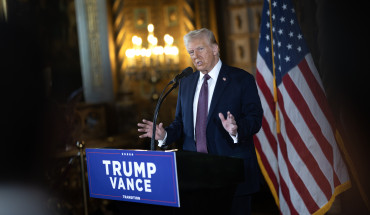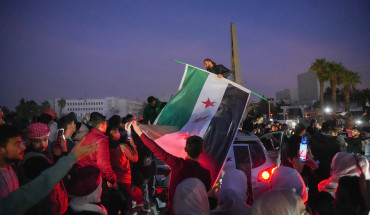The Iraqi Popular Mobilization Forces (P.M.F.) announced Monday that the militia forces have laid siege to the strategic city of Tal Afar in western Mosul, Iran’s Tasnim News Agency reports. According to a statement released by the group, militants from P.M.F.’s 4th Division today also attacked Islamic State targets in Hamrayn village in Tal Afar, killed several Islamic State militants, and destroyed their vehicles. The statement adds that the operation to seize the city of Tal Afar will begin soon. Tasnim, which is affiliated with the Islamic Revolution Guards (I.R.G.C.), adds that P.M.F. militiamen will partner with the Iraqi government security forces to liberate remaining regions in the “right bank” of Mosul.
Comment: Despite growing concern among Iraqi Sunni lawmakers and some regional governments, Iran-controlled militia groups are playing a prominent role in military in western Mosul. Ali al-Hussaini, a P.M.F. spokesman, claimed last month that the militia alliance has made significant territorial gains in western Mosul. “The combatants of this force have cut off all communications lines of Daesh [Islamic State] in the strategic city of Tal Afar, particularly from the western parts that border Syria,” Hussaini said in an exclusive interview with I.R.G.C.-affiliated Fars News Agency. “The siege of Daesh in Tal Afar plays a key role in preparing the ground for the liberation of Tal Afar and its surrounding regions.”
After liberating eastern Mosul, the Iraqi security forces shifted focus to western Mosul in February. But the P.M.F. forces – which is dominated by Iran-linked Shiite militia groups – had been leading military operations in the area for months and continue to have significant influence there. This has raised the fear that the sectarian Shiite groups may engage in revenge killing against the region’s Sunni population once the Islamic State is defeated – particularly in Tal Afar, which now has a majority Sunni population. Turkish Foreign Minister Mevlut Cavusoglu has warned that P.M.F.’s participation in western Mosul could further inflame sectarianism in Iraq and may trigger a response from Ankara.
The P.M.F. consists of militia forces largely from Shiite but also other Iraqi ethnic and religious groups, and the alliance has now been legally integrated into the Iraqi security forces. However, the most powerful units with the P.M.F. are controlled by the I.R.G.C., which poses threat not only to the Iraqi security but also to U.S. military advisers who are assisting Iraqi security forces in Mosul an across the country. Recently, Iran-linked Iraqi militia groups have launched a vicious propaganda campaign against the United States and pressured the Baghdad government to “expel” American forces from Iraq. Recently, the Iranian government has sent veiled threats to the Trump administration that Iranian proxies could retaliate against American interests in Iraq and the broader region if Washington threatens Iran’s security or its regional interests.
The Middle East Institute (MEI) is an independent, non-partisan, non-for-profit, educational organization. It does not engage in advocacy and its scholars’ opinions are their own. MEI welcomes financial donations, but retains sole editorial control over its work and its publications reflect only the authors’ views. For a listing of MEI donors, please click here.













